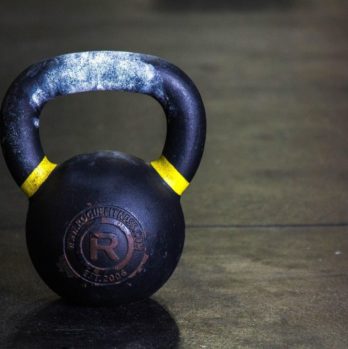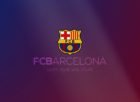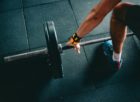Cristiano Ronaldo Diet: A High-Performance Approach to Nutrition

Introduction
Cristiano Ronaldo, one of the greatest footballers of all time, is known not only for his exceptional skills on the field but also for his impeccable physique. Part of Ronaldo’s success can be attributed to his strict diet, which plays a crucial role in his overall performance. In this article, we will delve into the details of the Cristiano Ronaldo Diet, exploring its various aspects, popular types, quantitative measurements, differences between them, and a historical overview of their pros and cons.
I. Overview of the Cristiano Ronaldo Diet

The Cristiano Ronaldo Diet focuses on providing the body with optimal nutrition to fuel intense workouts, support recovery, and maintain peak performance. Ronaldo’s diet plan primarily revolves around whole, unprocessed foods that are nutrient-dense and rich in protein, healthy fats, complex carbohydrates, vitamins, and minerals. By adhering to a well-balanced eating regimen, Ronaldo ensures that his body receives all the necessary nutrients to excel in his athletic endeavors.
II. Types of the Cristiano Ronaldo Diet
There are several variations of the Cristiano Ronaldo Diet, each tailored to specific goals or requirements. Let’s take a closer look at some of the most popular types:
1. High-Protein Diet:
This variation emphasizes consuming a substantial amount of protein, which aids in muscle recovery and growth. Ronaldo includes lean meats, fish, eggs, dairy products, and plant-based proteins, such as legumes and tofu, in his meals. A high-protein diet helps Ronaldo maintain his muscular physique and improve athletic performance.
2. Low-Carb, High-Fat Diet:
Also known as the ketogenic diet, this approach involves reducing carbohydrate intake and increasing the consumption of healthy fats. By limiting carbs, the body enters a state of ketosis, where it burns fat for fuel instead of glucose. Ronaldo incorporates avocados, nuts, olive oil, fatty fish, and coconut oil into his meals to stay in a state of ketosis, promoting fat burning and sustained energy levels.
3. Balanced Macronutrient Diet:
In this type of diet, Ronaldo maintains a balance between proteins, carbohydrates, and fats. He ensures that each meal consists of lean proteins, complex carbohydrates such as whole grains and fruits, and healthy fats like avocado and nuts. This approach allows for sustained energy levels, efficient muscle recovery, and overall well-being.
III. Quantitative Measurements in the Cristiano Ronaldo Diet
Ronaldo closely monitors his macronutrient intake to optimize his diet’s effectiveness. Here are some quantitative measurements Ronaldo pays attention to:
1. Caloric Intake:
Ronaldo consumes a specific number of calories each day, tailored to his individual needs and training demands. His caloric intake is carefully calculated to ensure he maintains his physique and meets his performance requirements.
2. Macronutrient Ratios:
Ronaldo carefully balances the proportions of proteins, carbohydrates, and fats in his diet. The specific ratios may vary depending on his goals, but he typically maintains a high-protein intake and adjusts his carbohydrate and fat consumption accordingly.
IV. Differences Between Cristiano Ronaldo Diets
Although there are variations in the Cristiano Ronaldo Diet, the core principles remain the same – nutrient-dense, whole foods and careful macronutrient ratios. The differences lie in the specific goals and dietary preferences of each individual following the diet. Some may prioritize muscle gain and opt for a high-protein approach, while others may focus on fat loss and choose a low-carb, high-fat diet.
V. Historical Overview of Pros and Cons
Over the years, the Cristiano Ronaldo Diet has gained popularity among athletes and fitness enthusiasts. Let’s explore the historical pros and cons associated with different variations of his diet:
1. Pros:
– Improved body composition and muscle definition.
– Enhanced athletic performance due to optimal nutrient intake.
– Sustained energy levels throughout the day.
– Faster recovery from intense workouts.
– Reduced risk of chronic diseases associated with a nutrient-dense diet.
2. Cons:
– Potential difficulty in adhering to strict dietary guidelines.
– Limited food options and social flexibility.
– Increased risk of nutrient deficiencies if not planned properly.
– Individual variance in responses to different diet types.
Conclusion
The Cristiano Ronaldo Diet is a testament to the significance of proper nutrition in achieving peak physical performance. By adopting a high-performance approach to his diet, Ronaldo has been able to consistently deliver outstanding results on and off the field. Whether it’s a high-protein diet, a low-carb, high-fat approach, or a balanced macronutrient intake, the key lies in personalized nutrition tailored to individual needs and goals. By understanding the various aspects, types, measurements, differences, and historical pros and cons of the Cristiano Ronaldo Diet, individuals can take inspiration from the football icon and apply the principles to their own health and fitness journeys.
Video: Cristiano Ronaldo’s Nutrition Secrets – [INSERT VIDEO HERE]











